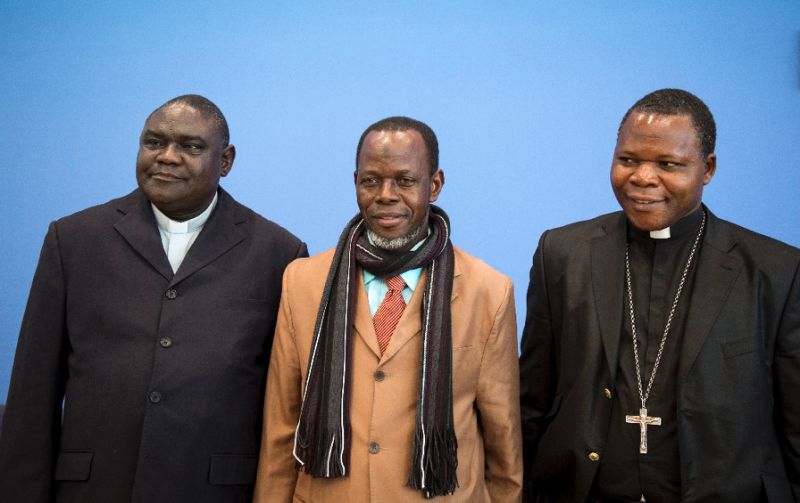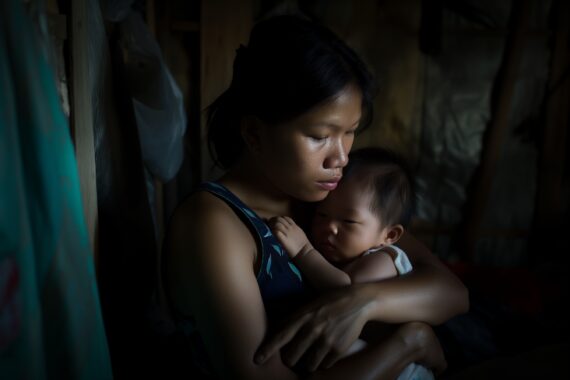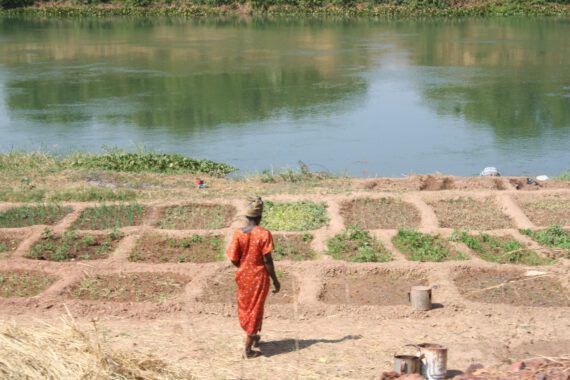Editor’s note: This post is part of a weekly series on fragility and hunger, rooted in themes from the 2017 Hunger Report: Fragile Environments, Resilient Communities.
By Stephen R. Hilbert and Stephen M. Colecchi
In late 2012, fighting in the Central African Republic (CAR) between government forces and a group of various Seleka militia intensified. Three religious leaders, Pastor Nicolas Guerekoyame, an Evangelical leader; Archbishop Dieudonné Nzapalainga, Catholic Archbishop of Bangui; and Imam Omar Kobine Layama, leader of the Muslim community, met in Bangui to discuss the alarming situation and how they could respond to help define a path away from violence.
Their first action was to meet with then-President Francois Bozizé to convince him to cease the anti-Muslim rhetoric that only served to inflame the conflict by pitting the religious communities against each other. About half of the population in CAR is Christian; Muslims make up approximately 15 percent; and adherents to traditional religions represent the rest.
The Seleka forces originated in the Northeast part of CAR, an area dominated by Muslim populations. They were joined by other Muslim militia from Sudan and Chad to plunder the rich natural resources in CAR, including diamonds and gold. The faith leaders knew that the conflict was essentially a struggle among a handful of political leaders over power and access to mineral wealth. They desperately wanted to prevent the political conflict from being transformed into a religious one that would tear apart the social harmony that had always existed among the faith communities.
Despite a ceasefire negotiated in January 2013, the religious leaders’ first attempt at peacebuilding failed. In March 2013, the Bozizé government fell and the Seleka leader, Michel Djotodia, took power. Seleka forces roamed the country attacking villages and towns. The religious leaders’ worst fears had come true. Villages made up of Christians and animists fought Muslim communities in what became a “religious” conflict.
Throughout 2013 and 2014 Archbishop Dieudonné, Pastor Nicolas, and Imam Layama traveled throughout the country, at great personal risk, to engage Muslim and Christian/animist villages, urging them to stop attacking one another. The three leaders formed the Religious Leaders Platform (RLP) and traveled to Europe and the United States to raise awareness of the conflict in CAR and to call for international assistance.
In January 2014, Michel Djotodia was forced out of power and the National Assembly appointed an interim leader, Catherine Samba Panza, although fighting continued. In March and November 2014, the RLP traveled to Europe and the United States to persuade the international community to increase its support to the interim government. By this time, the religious leaders’ work had become better known and acclaimed. These faith leaders also inspired action by religious leaders in the United States. The State Department and USAID worked with the Catholic Church, the Muslim community, and Evangelical leaders to send a delegation to CAR in May 2014 in a gesture of solidarity. Catholic Relief Services, World Vision, and Islamic Relief Worldwide joined together to develop and implement an interfaith peace program that USAID co-financed. The program, which began in early 2016, gives the RLP a staff and the resources to rebuild the social fabric of CAR torn apart by the political manipulation of its past leaders.
In November 2015, Pope Francis made an unprecedented visit to the war-torn country to show his fraternal concern for a people suffering the misery of conflict. He visited the central mosque of Bangui. Many in the country report that his presence visibly reduced tensions in the lead-up to difficult elections. In February 2016, the first free and fair elections in CAR’s history came to fruition and brought President Faustin-Archange Touadera to power.
Archbishop Dieudonné, Pastor Nicolas, and Imam Layama braved violence and death threats to silence the drums of war and rebuild peace for CAR. They continue their work today, with the help of American faith-based groups supported in part by the U.S. government, to heal the societal wounds of conflict and to improve prospects for peace.
Stephen R. Hilbert is Foreign Policy Advisor for Africa and Global Development in the Office of International Justice and Peace at U.S. Conference of Catholic Bishops; Stephen M. Colecchi is Director of the Office of International Justice and Peace for U.S. Conference of Catholic Bishops. This story originally appeared on p. 48 of the 2017 Hunger Report: Fragile Environments, Resilient Communities.



